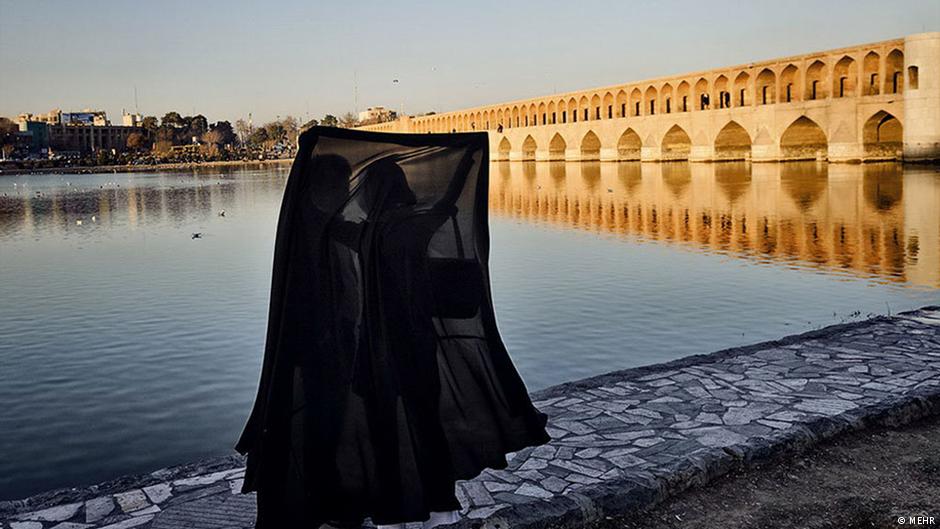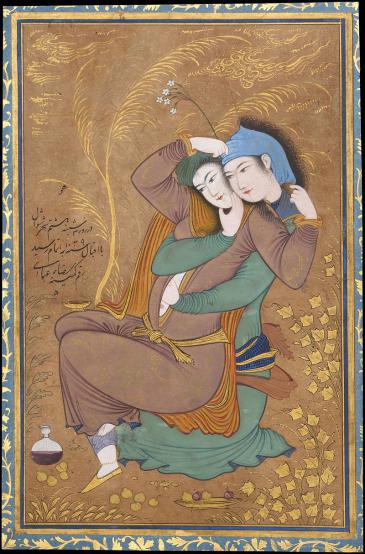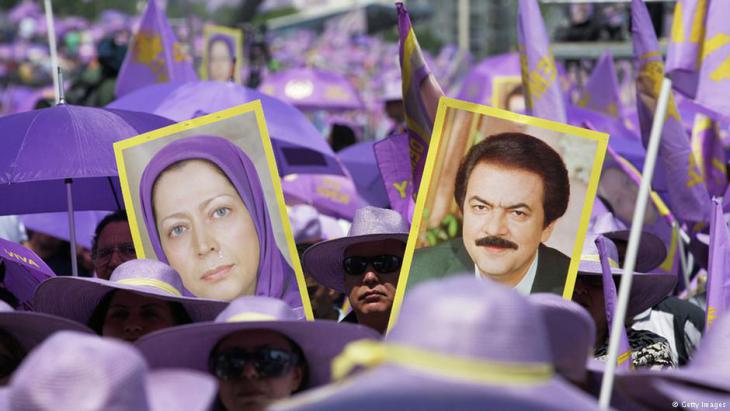Facing a "sex putsch"

If you google the term "sexual enlightenment" in Persian, you get a long list of results, first and foremost consisting of links to free downloads of foreign books and children′s books translated into Persian. Sigmund Freud′s work "The Sexual Enlightenment of Children" plays a significant part here.
Other links lead to publications demonising the promiscuity of the West, lamenting the rejection of morality and religion, or preparing young women for the fulfilment of their marital duties. It gives the appearance that hardly anyone, either in Iran or the diaspora, has ever given a thought to sexual self-determination, sexual practices, sexual hygiene or any other important aspects of the most natural thing in the world. No trace of an Iranian counterpart to publications like the Hite or Kinsey reports.
But if you search for long enough, you do find a few entries reporting on the activities of individuals in the Iranian government or abroad.
This gives a picture of the real-life conditions in Iran. The country′s relatively youthful society is confronted by sexual taboos and seeks consolation in secret. And the internet is the best place for that - whether you are looking for self-gratification or blind dates in the big cities.
Draconian punishments for sexual adventures
Young Iranians are using the internet to embark on sexual adventures, which attract harsh punishments under the law of the Islamic Republic, up to and including execution. Young Iranians' desperate search for sexual freedom is being described both by Western media and by the Iranian Ayatollahs as a "sexual revolution".
But the reality looks rather different: public debate about sexuality is still absolutely taboo in the theocracy; suppression of drives is the norm; and sexual enlightenment is punished, where it oversteps certain boundaries, as the "temptation towards depravity and decadence".

Private and state-sponsored sexual advice for young couples preparing for marriage does exist, but it is largely restricted to the sexual act on the wedding night and contraception.
A matter for the state?
Iran′s rulers regard the control of citizens' morality as one of their main tasks. The state pays out millions to a censorship authority to ensure that "sexually arousing terms" – including bosoms, thighs, red lips, pubic hair – appear neither in schoolbooks, nor in artistic or literary works.
But it is not just the state clinging to rigid ideas of morality; the majority of society holds the same views. In Iran, naming the sexual organs – "Kir" (penis) and "Kos" (vagina) – in public causes outrage. There are countless absurd euphemisms for them, the most common being instruments of procreation.
Writers and artists frequently complain that it is not just state censorship but the "bigotry" and "prudishness" of society that places limits on creative people. They deplore the authoritarian structures that they say have forced artists to practise serious self-censorship.
Help from abroad
The problem also exists outside Iran: there is no public discourse about sexuality among Iranians living abroad, either. The four to six million Iranians of the diaspora have not yet taken any substantial steps towards achieving sexual enlightenment in Iran.
The Swedish-Iranian sociologist Mehrdad Darvishpour has looked into the subject and discovered that: "Despite the relative sexual freedom in the West, conservatism and reticence can be seen among Iranians in exile. And so you turn your attention to other subjects; sexual enlightenment is only a peripheral consideration." The opposition in exile has always been engaged in a political battle with the Iranian regime, Darvishpour says. "But just because their political positions differ doesn't mean that the opposition takes a different line from the regime on all social issues."
The oppositional groups abroad are also "male-dominated, with largely patriarchal structures" according to Darvishpour. The majority opinion among the opposition is "that sexuality is an exclusively private matter." Recent academic studies show, however, that sexuality is an important instrument in the exercise of power, as the sociologist explains: "For example, there are opposition groups like the People′s Mujahedin, who maintain strict control over the sexuality of their members and even carry out enforced divorce. Here, a private matter like marriage is turned into an ideological symbol."The majority of Iranians in exile, spread across the continents, left Iran during the 1980s in the course of the Islamic regime′s "purges", to escape the wave of executions at that time. They were either part of the leftist opposition, which included the People's Mujahedin, or members of the aristocracy.
The moral guardians of the People′s Fedaiyan
The left regarded (and still regard) themselves as the representatives of the workers and farmers, classing emancipation and sexual enlightenment as secondary issues - "side contradictions" - to which no particular importance was to be attached. One section of the Marxist-Leninist People's Fedaian, an organisation particularly popular among young people, even made great efforts to police "social morality". Comrades whose behaviour was "amoral" were reprimanded or excluded from the organisation.

In at least one case, such behaviour is said to have led to the execution of a guerrilla fighter. According to Mehdi Fattapour, one of the People′s Fedaiyan′s leaders, Abdollah Panjeh-Shahi had a sexual relationship with a female guerrilla with whom he conspired to share an apartment. Although the relationship was based on mutual agreement, he was shot and the woman was thrown out of the organisation. The reason given for the execution was that an extra-marital relationship was immoral in the eyes of the population and could be used against the organisation by the Shah′s regime.
After the 2009 "Green Movement" was defeated, tens of thousands more people left Iran to escape state reprisals. These mostly young people may have been more open in their attitudes to sexuality than their parents′ generation, but studies on identity among diaspora Iranians show that a majority of the migrants still upheld the moral values of Iranian society and still felt a close connection to their former homeland.
Following a two-year empirical study of the "social construction of female identities" in Iranian women in Berlin, Teheran and Los Angeles, Judith Albrecht discovered that Iranian women in the USA – as in Iran – still point to their family "as an important source of identity". She writes: "For the women living in exile or as part of the Iranian diaspora, the country they left behind still is the main focus of their actions."
Even so, a small proportion of those living in exile are critical of Iranian society′s ideas about morality and are fighting from a distance to change "the traditional worldview". These "troublemakers" are scattered across the globe and are hardly connected to each other. But all the same, their activities are starting to bear fruit.
Generation Internet
An online project called Jensiat, for example, uses comics to explain sexually transmitted diseases. And this has also caught on with people in Iran. In 2013 the Persian-language team at Deutsche Welle took up the subject. They had realised there was hardly any information or education on sexual matters available in Persian, as one of the editorial team explained. And this realisation gave rise to the project "Sexuality, love and living together".
Other Persian-language radio and TV stations have also engaged with the topic. The TV channel Manoto, for instance, broadcast several programmes about sexuality. The issues they addressed included sexual enlightenment in schools in Iran. The London-based broadcaster admits that the moral ideas of Iranian society have to be taken into consideration. That was why parents had been made aware of the necessity of their children′s sexual enlightenment "in a roundabout way".

A lot of social media activists are also engaging with sexual subjects. Of course, it is impossible to tell whether they are acting from inside or outside Iran.
Many experts agree that the most effective activities for sexual enlightenment in Iran are being carried out by LGBT activists in exile. "The internet and other ways of making contact with queer activists and theorists outside Iran have clearly enabled people in Iran with an interest in social policy to engage with enforced heterosexuality and same-sex relationships," says Saideh Saadat-Lendle, head of "LesMigraS", the antidiscrimination and anti-violence section of the Berlin Lesbenberatung (lesbian advice service).
The Iranian activist has spent 25 years working to enlighten and support lesbians. In that time, she has seen a change in values take place within the educated layers of society. "The young people of ‘Generation Internet′ who have been leaving Iran since 2009 are much more open than the previous generation to the issue of homosexuality."
For decades now, the Islamic regime has been trying to ignore the influence of diaspora Iranians on developments in Iran. But for the last few years, those in charge of the Islamic theocracy and their followers have been complaining about this influence, particularly in relation to sexual enlightenment.
While some denounce the "sexual revolution" imported "from America" and warn of a "sexual putsch", more moderate forces argue for understanding with regard to young people′s "natural desires". Both groups see the Iranians living abroad as the cause of the "creeping change in sexual ethics" and are demanding appropriate solutions from those in power.
Shahrzad Osterer and Farhad Payar
© Iran Journal 2017
Translated from the German by Ruth Martin
